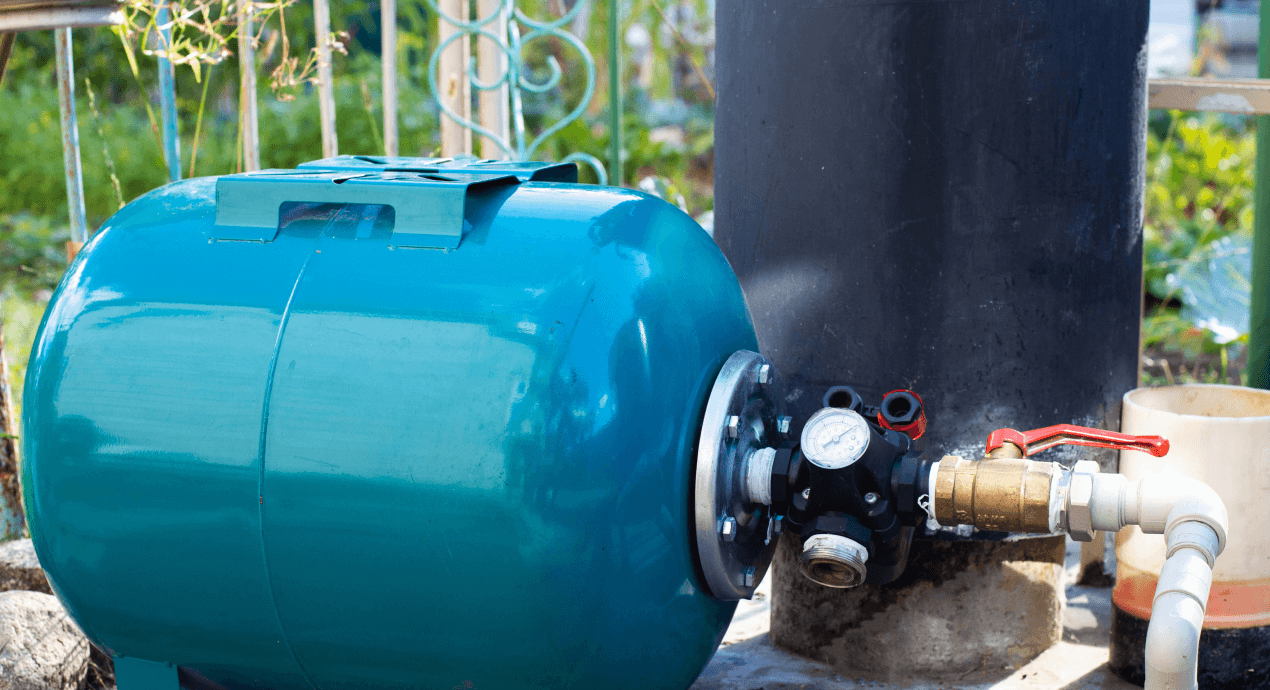
Contemplating coverage?
Subscribe to receive our emails & get
$200 OFF!
Have questions?
Call us: (833) 544-8273


Written By Ally Sabatina
As much as 15% of American households rely on wells for their drinking water, so understanding the intricacies of how long they last and how much replacements cost is an important priority. Let’s dive into well pump lifespan 101, so you can be prepared if you’re among the 13 million households who use well water.
On average, well pumps last between 8 and 15 years, but with proper maintenance, they can last as long as 20 years. Dan Oppedisano, owner of Bedrock Plumbing and Drain Cleaning, shared that the brand name makes a big difference. Gou
lds, Grundfos, Franklin Electric, and Pentair are considered among the most reputable, thanks to their strong factory warranties and longevity.
There’s a reason Liberty Home Guard was rated the #1 Home Warranty
Service by U.S. News and World Report for 2021, 2022, 2023, and 2024. Check out our services.
There are two different types of well pumps: submersible and jet pumps. Submersible pumps generally last longer, while jet pumps max out after a decade of use. Jet pumps are installed above ground, leaving them more vulnerable to the elements, whereas submersible pumps are installed below ground, limiting that exposure.
Type | Average Well Pump Lifespan |
Submersible | 8–15 years |
Jet pumps | 10 years |
Many factors can affect the average life of a well pump:
There are a few tell-tale signs that your well pump is on its way out. We’ve detailed them below so you can keep your eyes peeled and take action quickly should the need arise.
Persistent low water pressure may indicate a failing circulation pump. To rule out other causes, check your water valve and ensure it’s fully open and free of leaks. We also recommend cleaning around the pipes and faucets.
Gurgling, grinding, or whirring sounds, especially from the well pump, often signal a mechanical issue.
If your electricity bill has increased recently, your well pump may be to blame. Worn-out or clogged well pumps have to work harder to keep up with your home’s demands, leading to higher energy bills.
Spitting faucets can signal air bubbles in your pipes, which may be caused by a failing or leaking well pump.
If you don’t have any water or you’ve noticed a marked change in water quality, including discoloration, sediment, or foul odors, your well pump may be on its way out. You can order a water test or well pump inspection to gather more information.
Constantly cycling well pumps may have issues maintaining pressure, which can be a quick fix or a complete repair. For this reason, constant cycling typically requires professional repair to ensure it’s done properly.
Well pump replacement costs vary by the type, depth, and amount of work required to install it. Jet pumps are more affordable, but even submersible pumps have quite a range. Jet pumps start at around $800, while submersible pumps start at around $1,200. Submersible pumps installed 100 feet or shallower tend to cap around $2,000, but deeper installations can run as high as $3,000.
Labor costs also play a role. Josh Miller, owner and plumbing technician at Plumbing Lab, says installation can take up to 3 to 6 hours for deep pumps and hourly rates tend to fall between $75 and $150 per hour.
He continues, “To get a good deal, make sure you’re buying the right size for your system. Oversizing can wear the pump out faster and waste electricity. If you’re replacing a pump, I recommend matching the one you had, unless your water usage changes. Buying from a local supplier instead of big box stores sometimes gets you better support, especially if something goes wrong.”
Liberty Home Guard has a full suite of add-on options, designed to expand your coverage to the other essential systems and appliances that keep your home running. When you add well pump coverage to your home warranty, our trusted technicians will respond to your claims within two days, where they will assess and determine if it’s a covered issue. If it is, your policy will cover up to $500 toward parts and repairs, reducing downtime and headaches.
Request a no-obligation quote to learn more about your options!
There’s a reason Liberty Home Guard was rated the #1 Home Warranty
Service by U.S. News and World Report for 2021, 2022, 2023, and 2024. Check out our services.
Yes, you should have a backup for your well pump system if it’s your property’s main source of water. We recommend a generator, manual pump, back-up battery, or water tank to maintain water access if your well pump fails.
Several factors affect well pump lifespans, such as:
The main difference between submersible and jet well pumps is installation location. Submersible pumps are installed fully submerged in the well, propelling water upwards and into your pipes whereas jet pumps are installed above ground pull the water out of the well. A qualified plumber can help you decide the best option for your home’s needs.
Stay Ahead of Potential
Home Mishaps!
Subscribe to our Liberty Home Guard Newsletter and gain access to exclusive content that ensures your peace of mind.